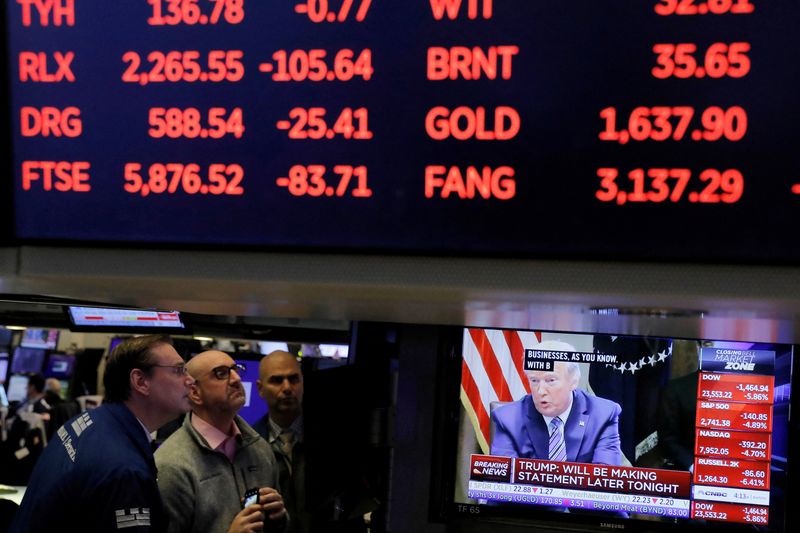Analysis-Wall Street, Corporate America brace for more tariff turmoil
By Suzanne McGee and Davide Barbuscia
(Reuters) -Wall Street is bracing for another bumpy ride ahead of a forthcoming Supreme Court decision on the constitutionality of tariffs that could throw Corporate America into turmoil and raise questions over the country’s fiscal health.
The plunge in asset prices in early April in the wake of U.S. President Trump‘s Liberation Day tariff announcements offers Wall Street a taste of what some believe may be in store if courts opt to overturn a tariff regime to which market participants have become accustomed.
Since then, the administration has announced an array of trade deals and companies have found ways to absorb some of the costs. Markets in turn have recovered and moved on to set fresh highs.
In spite of the Supreme Court hearing the case on an expedited basis, some market participants said they expect a ruling to take a month or even longer following oral arguments. The Supreme Court’s public information office said that opinions on any case are generally released during the term in which it is argued. The current term ends June 6, 2026.
“Upholding the tariffs would simply be the court saying the status quo is fine, and markets have now accepted that status quo,” said Rob Arnott, chairman of investment firm Research Affiliates. “Reversing them would cause massive uncertainty, and markets hate uncertainty more than anything.”
Companies may get a big one-time boost if the Supreme Court combines a decision that the tariffs are unconstitutional with a ruling that they are in line for refunds, a sum that TD Bank rate strategists could total $100 billion. But some caution that such a tailwind could be offset by the headwind of greater uncertainty and the prospect of more political and legal battles.
“Trade uncertainty would ratchet higher,” said Doug Peta, chief U.S. strategist at BCA Research. “Businesses might pause investments and freeze hiring. Households might tighten their purse strings.”
All of which, Peta said, could translate into U.S. stock indexes falling from recent record levels and credit spreads widening still further.
“Financial markets have made their peace” with the impact of tariffs on inflation, economic growth and asset prices, said Peta.
At issue before the Supreme Court is whether Trump overstepped his authority by invoking the 1977 law known as the International Emergency Economic Powers Act (IEEPA) in imposing tariffs, as the plaintiffs argue. Not just the nature but also the scope and details of any ruling — and the administration’s response — complicate investors’ ability to analyze just how markets may react.



Leave a Comment
Your email address will not be published. Required fields are marked *